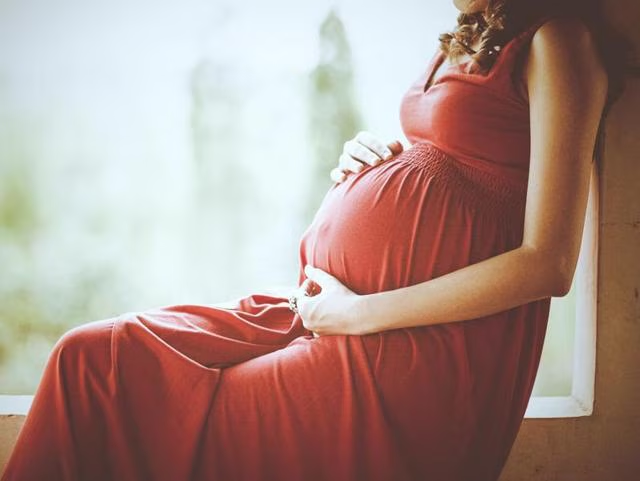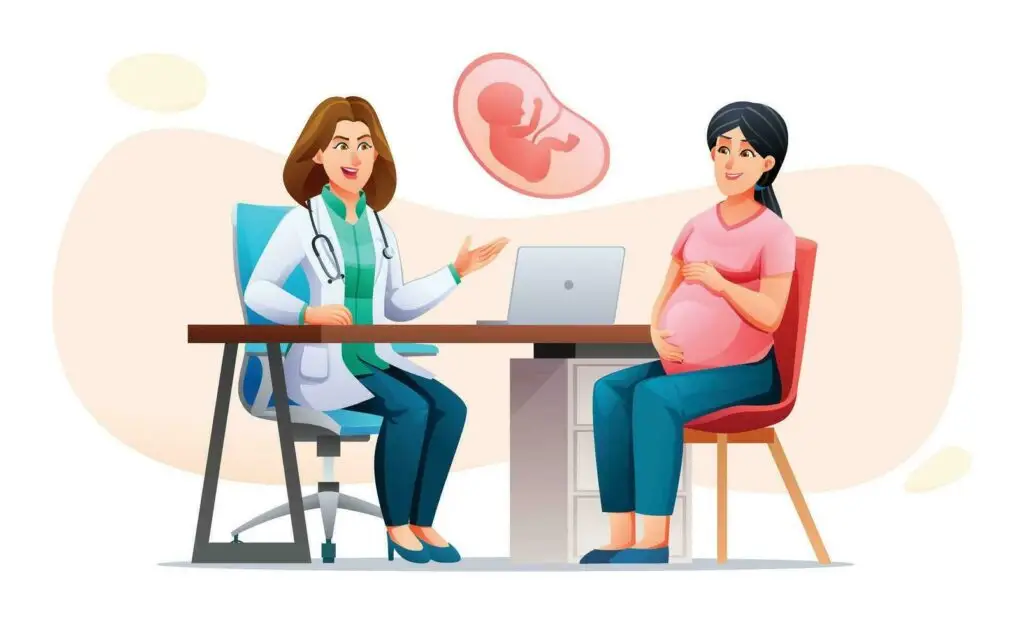Bringing a new life into the world is a dream for many couples, but sometimes natural conception can be difficult due to medical or lifestyle factors. In such cases, assisted reproductive techniques like In Vitro Fertilization (IVF), commonly known as “test tube baby,” offer a ray of hope. Nepal has emerged as a preferred destination for affordable and high-quality fertility treatments, including test tube baby procedures.
In this article, we’ll explore the test tube baby cost in Nepal, the process involved, factors affecting the price, top clinics, success rates, and everything else you need to make an informed decision.

What is a Test Tube Baby?
A test tube baby is a common term for a child conceived through IVF. In this process, the egg is fertilised with sperm outside the body in a laboratory. Once the embryo forms, it is transferred back into the uterus for implantation and pregnancy.
This method helps couples who are unable to conceive naturally due to reasons such as:
- Blocked or damaged fallopian tubes
- Male infertility (low sperm count or motility)
- Polycystic ovarian syndrome (PCOS)
- Unexplained infertility
- Advanced maternal age
Test Tube Baby Cost in Nepal
The cost of test tube baby in Nepal is much more affordable compared to other countries. On average, the test tube baby cost in Nepal ranges from NPR 3,50,000 to NPR 4,50,000 (approx. USD 2,600 to USD 3,300) per IVF cycle.
This is significantly lower than countries like the USA, UK, or Australia, where the same treatment can cost USD 10,000–20,000 per cycle.
What’s Included in the Cost:
- Initial consultation and medical assessment
- Fertility medications and hormone injections
- Egg retrieval procedure
- Sperm preparation
- Fertilization and embryo culture
- Embryo transfer into the uterus
- Pregnancy confirmation test
What’s Not Included:
- Additional medication if needed
- Frozen embryo transfer (if used later)
- Donor eggs/sperm (if applicable)
- Surrogacy (if opted)
- Advanced techniques like ICSI, PGD, or assisted hatching
The following table helps you to understand the cost of Test Tube Baby and other Test Tube Baby treatment types in Nepal:

| Test Tube Baby Type in Nepal | Cost of Test Tube Baby in Nepal (NPR) | Cost of Test Tube Baby in Nepal (USD) |
| Standard Test Tube Baby Cost in Nepal | 280,000 to 340,000 | 2028.49 to 2463.16 |
| Test Tube Baby with Egg Donor Cost in Nepal | Up to 480,000 | Up to 3477.41 |
| Test Tube Baby with Sperm Donor Cost in Nepal | Up to 390,000 | Up to 2825.39 |
| Test Tube Baby with ICSI Cost in Nepal | Up to 340,000 | Up to 2463.16 |
| Test Tube Baby with IMSI Cost in Nepal | Up to 390,000 | Up to 2825.39 |
| Test Tube Baby with TESA Cost in Nepal | Up to 400,000 | Up to 2897.84 |
| Test Tube Baby with PGD Cost in Nepal | Up to 1,130,000 | Up to 8186.40 |
| Test Tube Baby with Surrogacy Cost in Nepal | Up to 3,955,000 | Up to 28652.40 |
The following table helps you to understand the cost of a test tube baby in different places in Nepal:
| Test Tube Baby costs in different places in Nepal | Cost of Test Tube Baby in different places in Nepal (NPR) | Cost of Test Tube Baby in different places in Nepal (USD) |
| Test Tube Baby Cost in Pokhara | 150,000 to 350,000 | $1,125 to $2,625 |
| Test Tube Baby Cost in Kathmandu | 160,000 to 250,000 | $1,200 to $1,875 |
| Test Tube Baby Cost in Chitwan National Park | 161,000 to 245,000 | $1,207.50 to $1,837.50 |
| Test Tube Baby Cost in Lumbini | 160,040 to 238,000 | $1,200.30 to $1,785 |
| Test Tube Baby Cost in Nagarkot | 150,400 to 250,000 | $1,128 to $1,875 |
| Test Tube Baby Cost in Bhaktapur | 145,000 to 267,000 | $1,087.50 to $2,002.50 |
| Test Tube Baby Cost in Bandipur | 157,000 to 260,000 | $1,177.50 to $1,950 |
| Test Tube Baby Cost in Sarangkot | 140,000 to 249,000 | $1,050 to $1,867.50 |
| Test Tube Baby Cost in Patan | 159,000 to 250,000 | $1,192.50 to $1,875 |
| Test Tube Baby Cost in Kathmandu Durbar Square | 160,000 to 270,000 | $1,200 to $2,025 |
Factors Affecting the Cost of Test Tube Baby in Nepal
The final cost can vary depending on several factors:
Age of the Woman
Women above 35 may require higher doses of medication or multiple cycles, increasing the total expense.
Medical History
Underlying health issues like PCOS, diabetes, or thyroid may demand extra care and monitoring, affecting costs.
Type of Fertility Treatment
Standard IVF is cheaper than advanced techniques like ICSI (Intracytoplasmic Sperm Injection) or PGD (Preimplantation Genetic Diagnosis).
Need for Donor Services
Using donor eggs or sperm adds to the cost due to donor compensation and additional procedures.
Number of Cycles
Some couples conceive in the first cycle, while others might need two or more attempts.
Clinic Reputation and Location
Highly reputed clinics in cities like Kathmandu or Pokhara may charge slightly more due to advanced infrastructure and experienced doctors.
Best Test Tube Baby Centres in Nepal
Here are some of the top IVF centres offering test tube baby services in Nepal:
1. Nepal IVF Centre, Kathmandu
A leading fertility clinic with international standards and high success rates. Known for affordable IVF packages and modern technology.
2. Vatsalya Natural IVF, Kathmandu
Well-equipped with modern lab facilities and a skilled team of fertility experts. Offers personalised care and affordable treatment options.
3. Grande International Hospital Fertility Centre
A renowned multispecialty hospital in Nepal, offering IVF services with excellent care and ethical treatment.
4. Norvic Hospital IVF Unit
Another reputed name in Kathmandu with advanced facilities, experienced doctors, and a high patient satisfaction rate.

Test Tube Baby Process Step-by-Step in Nepal
Let’s understand the IVF (test tube baby) procedure in a simple way:
Consultation and Screening
Doctors evaluate both partners through blood tests, ultrasound, and semen analysis.
Ovarian Stimulation
The woman is given hormone injections for 10–12 days to stimulate egg production.
Egg Retrieval
Mature eggs are collected from the ovaries using a minor surgical procedure under anaesthesia.
Sperm Collection
A semen sample is taken from the male partner, or donor sperm is used if needed.
Fertilization
Eggs and sperm are combined in a lab dish. After successful fertilization, embryos are formed.
Embryo Transfer
A healthy embryo is selected and transferred into the woman’s uterus.
Pregnancy Test
After 14 days, a blood test confirms if pregnancy has occurred.
Success Rate of Test Tube Baby in Nepal
The average success rate of IVF in Nepal is between 50% to 65% per cycle for women under 35. The success rate decreases slightly with age but can improve with advanced methods like ICSI or PGD.
Key factors influencing success:
- The woman’s age
- Quality of eggs and sperm
- Uterine health
- Lifestyle and stress levels
Why Choose Nepal for IVF?
Here are the reasons why Nepal is becoming a hub for test tube baby treatment:
Affordable Packages
IVF treatment in Nepal is 50-70% cheaper than in Western countries without compromising quality.
International Standards
Top clinics use advanced technologies and international protocols for IVF.
Experienced Doctors
Nepal has skilled fertility specialists with global training and years of experience.
Less Waiting Time
Unlike some countries, appointments and procedures are quicker and more flexible.
Tourism Friendly
Nepal is a beautiful destination, allowing couples to relax while undergoing treatment.
Tips to Increase IVF Success in Nepal
- Maintain a healthy lifestyle before and during treatment
- Avoid smoking and alcohol
- Follow your doctor’s instructions carefully
- Get proper rest and manage stress
- Take prescribed supplements (like folic acid)
Why choose the Nepal IVF Centre?
A compassionate service provider like Nepal IVF Centre is an expert in the field of parenthood and supports patients in making their parents’ dreams come true. We, at Nepal IVF Centre, have in place a fully experienced team that works round the clock to custom-create specialised IVF treatment strategies for all patients. We guarantee attentive and sophisticated care to all patients while using specialised technology to maximise success rates.
Our understanding of the IVF emotional journey enables us to actively support you throughout the process. Furthermore, my treatment options include very affordable and quality value statements, making IVF available to more families. Lastly, in our firm belief, the combination of success and comfort, along with a welcoming environment, makes us the best choice for people planning to start or grow a family.

Conclusion
The dream of becoming a parent doesn’t have to be delayed due to infertility. With affordable and high-quality fertility care, test tube baby treatment in Nepal offers hope to countless couples from Nepal and abroad. From advanced clinics to expert doctors and affordable pricing, Nepal is undoubtedly a growing hub for IVF treatment.
Before starting your journey, make sure to consult with a reputed IVF centre, understand the process clearly, and prepare mentally and physically for the treatment. With the right support, guidance, and care, your dream of holding your baby in your arms can come true.
If you have any more queries or need personalised guidance, feel free to reach out to a fertility consultant in Nepal.
FAQs (Frequently Asked Questions)
What is the average cost of a test tube baby in Nepal?
The average cost ranges from NPR 3,50,000 to NPR 4,50,000 (USD 2,600–3,300) per cycle.
Is IVF treatment legal and safe in Nepal?
Yes, IVF is legal and performed safely at certified clinics with ethical guidelines.
How many IVF cycles are usually required?
It depends on the individual case. Some couples succeed in one cycle, while others may need 2–3 attempts.
Can international patients come to Nepal for IVF?
Yes, Nepal is open to international couples seeking fertility treatments.
Are there EMI or instalment options for IVF in Nepal?
Many clinics offer instalment payment plans or EMI options to ease the financial burden.
Does the cost include medication?
Basic medication is included, but some additional hormonal drugs may be charged separately.
What is the success rate of IVF in Nepal?
The average success rate is 50% to 65%, depending on age and medical history.
